Ramirent: Data-Driven Approach and Robust Analytics Streamline Management
Source: Äri-IT Kevad 2025
Author: Gerli Ramler
Ramirent Baltic AS, a tool rental company, has been operating in the Estonian market for over 30 years. The company’s CFO, Janne Prümmel, praises the management’s openness to IT development and the adoption of new technologies, noting that data-driven management enhances efficiency and transparency.
In 2007, Ramirent Estonia transitioned to Navision, now known as Business Central, with its Latvian and Lithuanian branches joining two years later. “I joined Ramirent in 2012, and since then, we’ve continuously updated and developed the program. My predecessors laid a solid foundation, allowing me to implement my ideas. I’ve always believed that focusing on operational metrics provides a clearer picture than financial metrics, leading to greater overall success,” Prümmel explains.
Janne Prümmel initially joined Ramirent as a controller, focusing on reporting and broader data analysis. “As we are the primary users of our data, we understand our needs. Over time, the software’s user experience has improved, with significant data additions and simplified features. The consistency across Microsoft products is a major advantage, as their software shares a similar logic.”
Ramirent utilizes Business Central’s data warehouse and Power BI analytics, integrating payroll, invoice management, and other modules. Prümmel highlights the customizable dashboards as a key benefit, significantly enhanced in-house. “Our data updates automatically every four hours, providing real-time insights into rental agreements, equipment availability, and estimated daily revenue,” she notes. “We can analyze customer activity by day and hour, identify popular equipment, and track revenue and associated costs. This helps us monitor performance, identify idle equipment, and optimize resource allocation.”
Reporting and analytics are widely used across Ramirent, with over 90% of employees, including management and 50 rental locations (approximately 100 users), leveraging these tools. The CFO emphasizes the ability to generate reports with various margins, evaluating performance, budgets, and payroll costs relative to revenue. “Numbers speak for themselves. Detailed analytics support objective decision-making, whether it’s for salary adjustments or workload assessments.”
Setting an Example for Other Countries
Ramirent’s in-house expertise has enabled significant software customization. Prümmel credits the management, especially CEO Heiki Onton, for empowering employees in this area. “He encouraged us to explore and innovate with data. Initially, changes required management approval, but now each rental location has its own Power BI. I even attended an Excel training with a controller from my department to better understand the analytics logic. While our initial reports were rudimentary, other Ramirent countries now learn from our advancements. Our reporting is dynamic, with continuous updates and additions. The possibilities with data are extensive.”
Prümmel cautions against the misconception that software alone solves business challenges. “It requires dedicated effort, as business issues don’t resolve themselves. Data must be structured, and reports must yield actionable insights. Analytics should be accessible to all employees, not just finance professionals, to simplify and enhance their work. For instance, our rental location managers, who aren’t finance experts, rely on data to make informed decisions. A data-driven approach streamlines and clarifies management.”
In addition to revenue and equipment popularity, Ramirent has implemented a fuel inventory system within Power BI. This eliminates the need for manual monthly checks, allowing for real-time monitoring of fuel consumption. The system also tracks repair data, providing insights into equipment depreciation and costs.
“A significant advantage of Power BI is its widespread adoption among employees. Previously, monthly reports were the norm. Now, our rental locations essentially cross-check the work of controllers and accountants, identifying errors before invoices reach customers,” Prümmel notes. “My vision is for the software to calculate sales commissions in real-time, but this requires further system integration and data input. The more data we provide, the more value we derive.”
Leveraging AI in Business Analytics
Ramirent’s CFO sees ample room for growth in their business analytics. “We aim to incorporate maintenance team data for detailed cost analysis and explore AI applications. With our comprehensive reports, we want to test AI’s ability to forecast cash flow and automate routine tasks,” Prümmel explains. “In accounting, our focus is on automation, enabling employees to focus on strategic tasks rather than manual data entry. For example, we aim to automate the processing of PDF invoices.”
Another potential AI application is ESG reporting, where AI could automate data extraction and processing. Ramirent, committed to sustainability, has been promoting the sharing economy for 30 years. The company’s equipment fleet includes electric, gas, and latest-generation combustion engine machines, with staff actively promoting eco-friendly alternatives. “The construction sector is still in its early stages of adopting sustainable practices. We’ve experimented with chatbots for customer service and continuously explore how IT and AI can benefit our operations, the environment, and our customers.” Prümmel cites rental lockers as an example, which have seen limited adoption due to the need for customer education. “How do we encourage proactive planning among our customers? Our equipment is well-maintained and eco-friendly, emphasizing the sustainability of renting.”
Power BI: Not for the Faint-Hearted
Ramirent’s CFO acknowledges the complexity of Power BI. “It’s primarily an IT tool. However, controllers and finance professionals with a keen interest and willingness to learn can master it. I see three main benefits: rapid reporting, powerful analytics, and data quality insights. Plus, Power BI is cost-effective.”
Prümmel cautions against overloading the software with complex queries. “High user activity can strain the system. Therefore, we schedule data processing for off-peak hours, as not all data requires real-time updates. Manual updates and direct queries are also available without disrupting performance.”
Ramirent Baltic AS was established in Estonia in late 1993, with operations commencing in 1994. The company serves diverse sectors, including construction, industry, advertising, and public administration, as well as private individuals. Ramirent is also a significant contributor to Estonian sports and culture, supporting various disciplines for many years.

